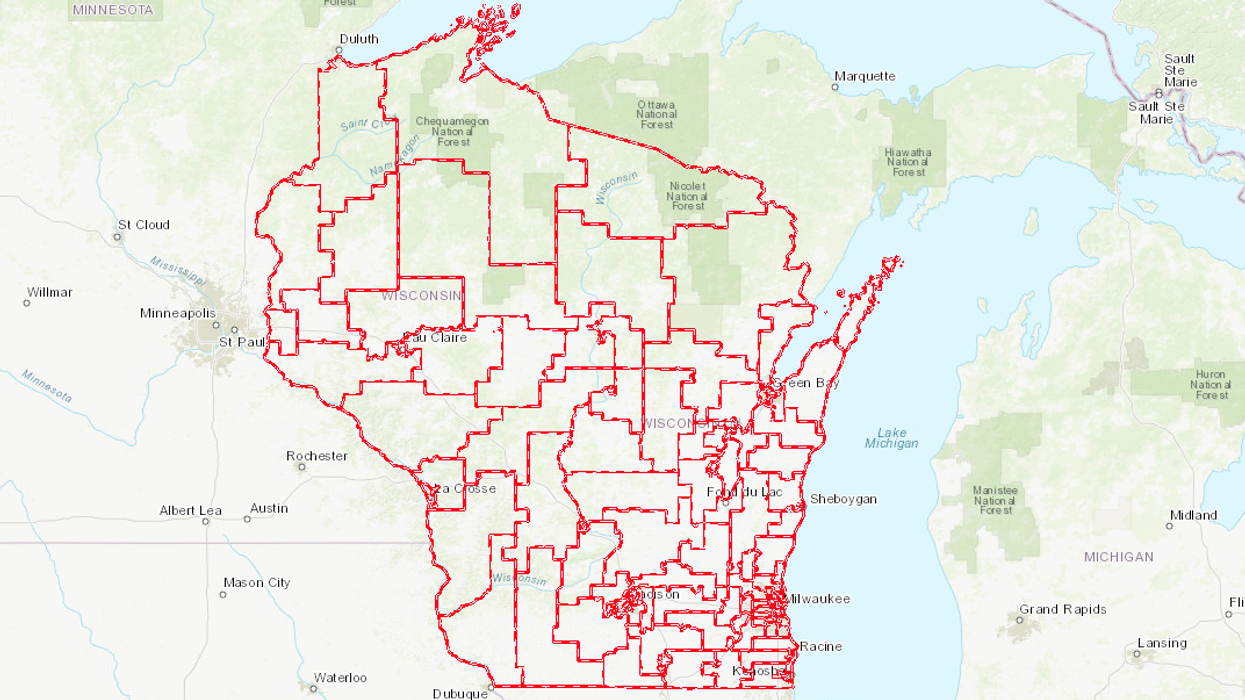A newly bipartisan group of Wisconsin legislators is pushing a bill to get politicians out of the business of drawing the state's electoral maps. It's the first such concerted move in a state capital since the Supreme Court last month gave a constitutional green light to unlimited partisan gerrymandering.
The effort still faces long odds in Madison, where Republicans have a solid hold on the Legislature thanks to their aggressive drawing of boundaries after the last census.
Their maps allowed the GOP to maintain a lopsided 63-36 majority in the state House in last year's election, and a 19-14 edge in the state Senate, even though Democrats won 53 percent of the cumulative legislative vote statewide.
A federal lawsuit — in which Democrats challenged those maps as unconstitutionally limiting their free speech and equal protection rights — was effectively killed by the Supreme Court's ruling in June that federal courts have no power to police political power plays in districting.
The decision leaves that power to voter referenda, state legislatures such as Wisconsin's or state courts like the one now considering a challenge to North Carolina's map under the state constitution.
Before that decision, a pair of senior Democrats in Wisconsin had introduced a measure that would have turned the coming round of state legislative cartography, after next year's census, over to civil servants under the oversight of a commission without any partisan majority. At a news conference Tuesday, they announced the support of three GOP assemblymen who represent competitive districts.
"We can no longer count on anyone else to do it for us. If we want fair and competitive elections, we must all do the work," state Sen. Dave Hansen said. "We now have what we truly can call a bipartisan bill. The time is right. The time is now."
But the GOP Assembly speaker, Robin Vos, vowed to oppose any effort to hand over legislative mapmaking to "an unelected, unaccountable board of bureaucrats appointed by politicians."
The current boundaries, which Scott Walker approved as a new GOP governor eight years ago, packed Democratic voters into a relatively few state legislative districts in Milwaukee and Madison in order to minimize their influence across the suburbs and rural areas.
The congressional map was similarly drawn, and so the GOP has regularly won in five of the eight districts — including last fall, when the party got just 45 percent of the statewide vote for House candidates.
Walker is now in charge of a group coordinating the Republican efforts to maximize their congressional and state legislative power in maps drawn for the next decade.




















